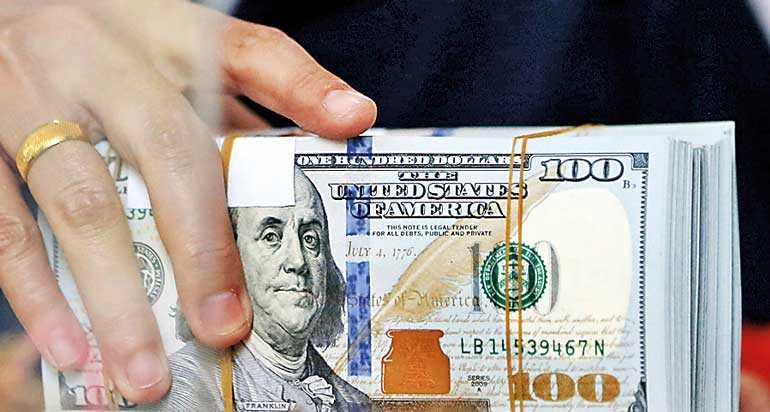Monday Feb 23, 2026
Monday Feb 23, 2026
Monday, 10 December 2018 03:16 - - {{hitsCtrl.values.hits}}

The ongoing unprecedented political crisis has triggered a faster outflow of dollars from Sri Lanka’s debt and capital markets as per the latest provisional data.
Wealth Trust Securities said the week ended 5 December saw a foreign outflow of Rs. 17 billion, the highest in 23 months whilst the stock market witnessed a near Rs. 1 billion flight last week.
According to Central Bank data, the bond market saw outflows of about Rs. 51.2 billion between 25 October and 5 December whilst in the stock market foreigners have been net sellers to the tune of Rs. 9.6 billion since President Maithripala Sirisena removed the sitting Prime Minister Ranil Wickremesinghe on 26 October and appointed his former political rival Mahinda Rajapaksa to the position. Analysts said that outflows from both the debt and capital market have accelerated since the beginning of the crisis and the political impasse which has followed for over six weeks.
To date, the outflow from the government securities market is a staggering Rs. 144 billion (the value since the crisis amounts to over 35% of the cumulative figure) and net selling from the Colombo Bourse is over Rs. 19 billion. The Central Bank however pinned the outflow to the “ongoing portfolio rebalancing strategy of foreign investors”.
It said in September the government securities market continued to experience a withdrawal of foreign investments, recording a net outflow of $ 152 million, thus raising the net cumulative outflow to $ 468 million by the end of the first nine months of 2018. Foreign investments in the CSE, including both secondary and primary market foreign exchange flows, recorded a net outflow of $ 7 million in September and on a cumulative basis to $ 37 million in the first nine months of 2018. In September, long-term loans to the government recorded a net outflow of $ 63 million as loan repayments exceeded loan inflows.
As at end-September 2018, gross official reserves were estimated at $ 7.2 billion, equivalent to 3.8 months of imports. Total foreign assets, which consist of gross official reserves and foreign assets of the banking sector, amounted to $ 9.6 billion as at end-September 2018, equivalent to 5.1 months of imports.
The rupee, which was under severe pressure last month, strengthened marginally last week. It ended at 178.70/85 per dollar on Friday, compared with 179.15/20 in the previous session. It gained to 178.50 during the trade due to dollar inflows from remittances.
Wealth Trust Securities said the US dollar on its spot contracts was seen closing the week higher at Rs. 178.60/90 against its previous week’s closing of Rs. 178.80/10, on the back of inward remittances and selling interest by banks.
The rupee has weakened by about 3.1% since the political crisis began and fell 1.8% in November and 16.3% so far this year. It hit a record low of 180.85 per dollar on 28 November.
The Central Bank argued that the weakening of the Sri Lankan rupee against the US dollar mostly reflects a broad-based strengthening of the US dollar globally, outflows from the government securities market and demand for import expenditure in the foreign exchange market.
Another worrying development is the depressed performance of workers’ remittances. It declined year-on-year by 7.1% in September to $ 500 million and by 1.5% to $ 5.3 billion during the first nine months of 2018.
Expenditure on imports rose by 6.1% year-on-year to $ 1.76 billion in September and by 10.4% to $ 16.85 billion in the first nine months. On the other hand exports gained by 4.4% to $ 1.05 billion in September and by 5.6% to $ 8.9 billion in the first nine months. The trade deficit grew to $ 8 billion as against $ 6.8 billion in the first nine months of last year.
Pressure on the external sector has resulted in the Balance of Payments being a negative $ 650 million for the first nine months of 2018 as against a positive $ 2 billion a year earlier.
As per the Central Bank, FDIs during the first eight months were $ 1.35 billion as against $ 567 million during the corresponding period of last year.
Dollar’s unrivalled surge this year will reverse in 2019: Reuters poll